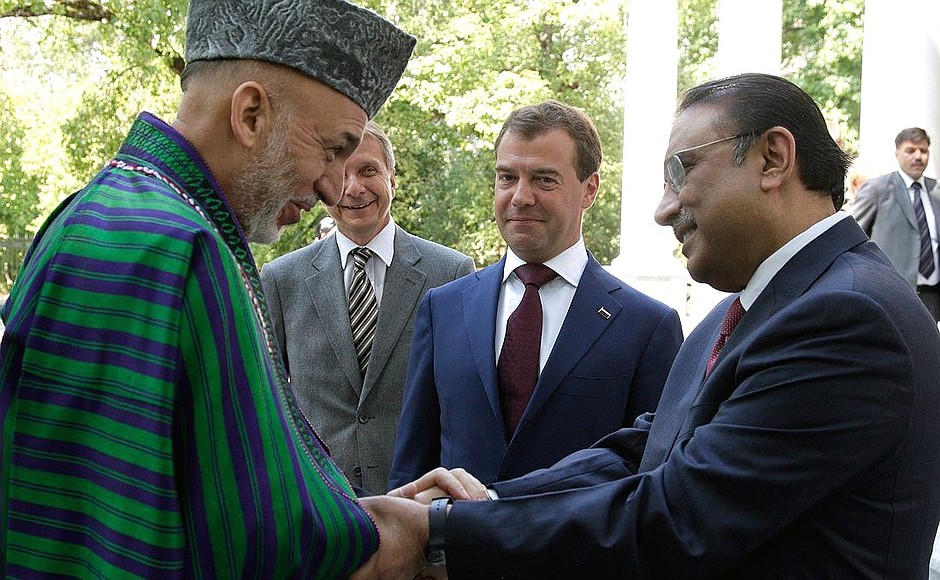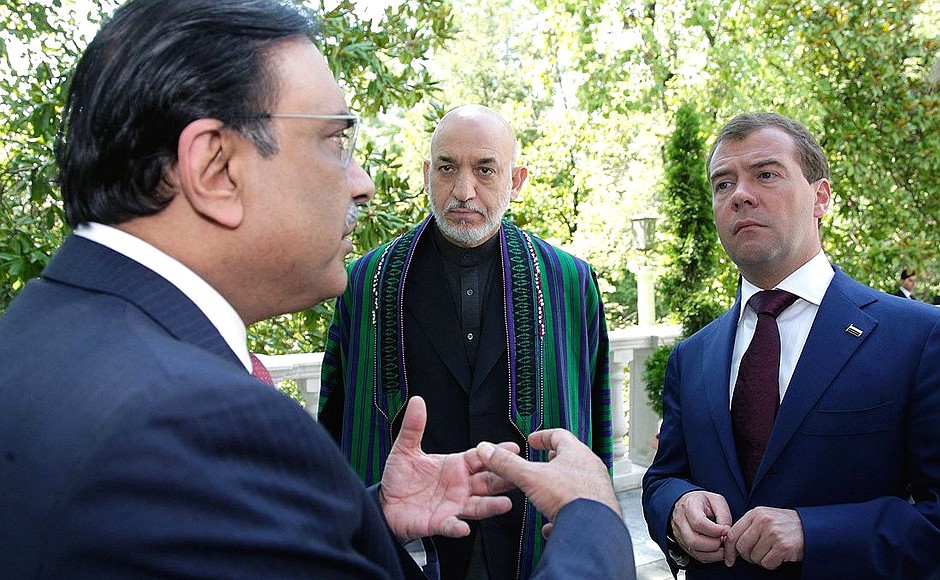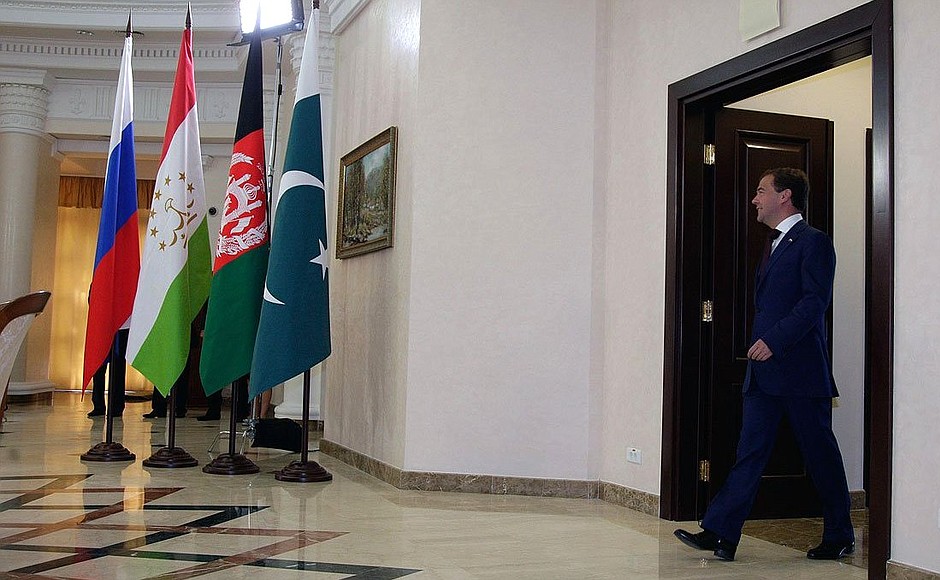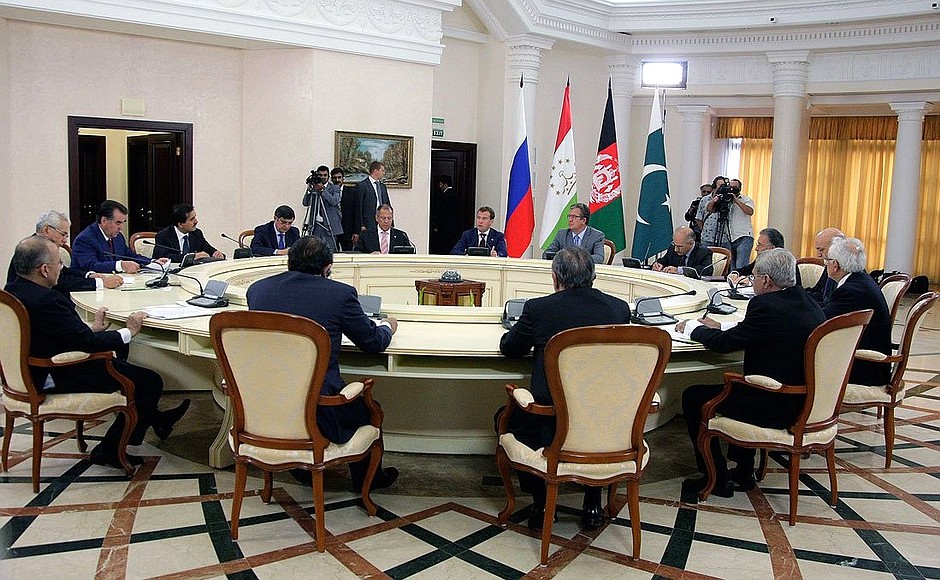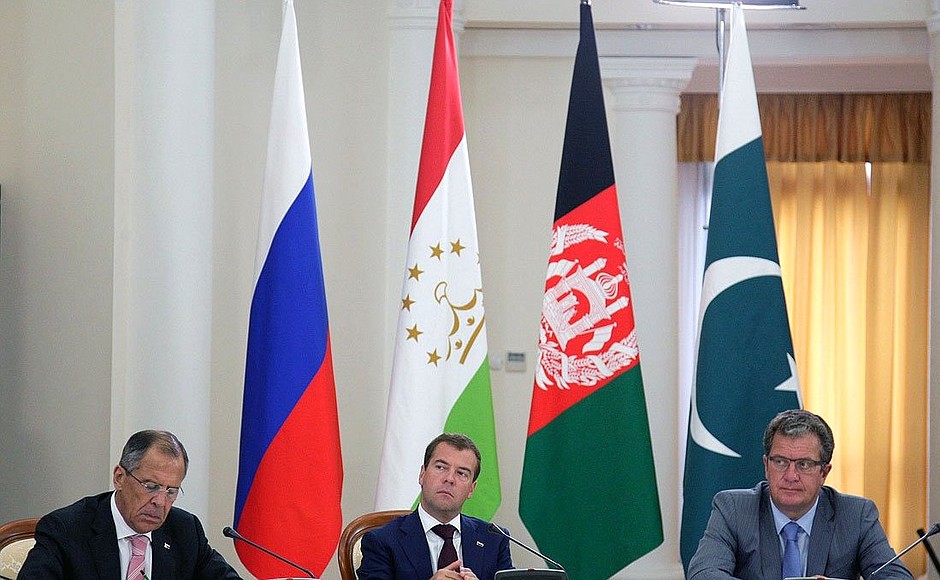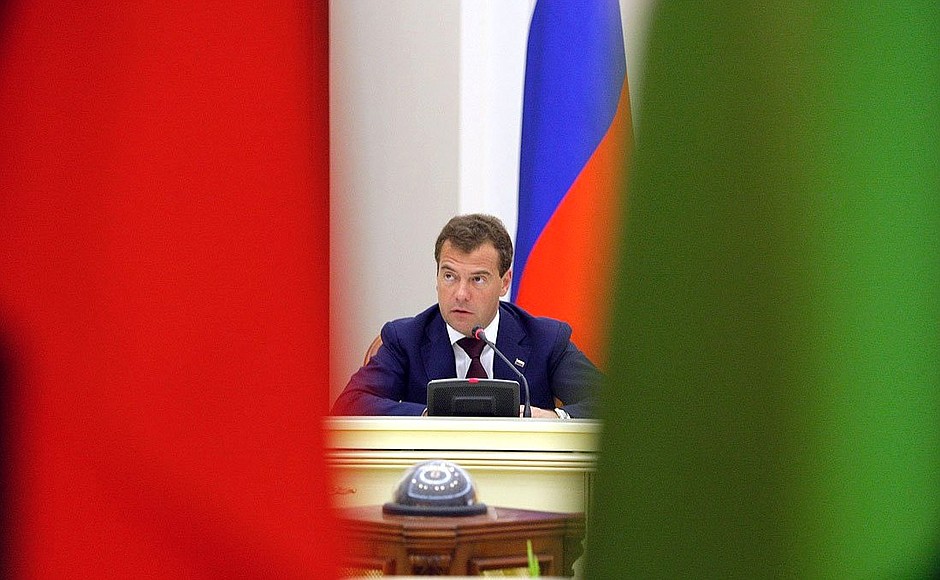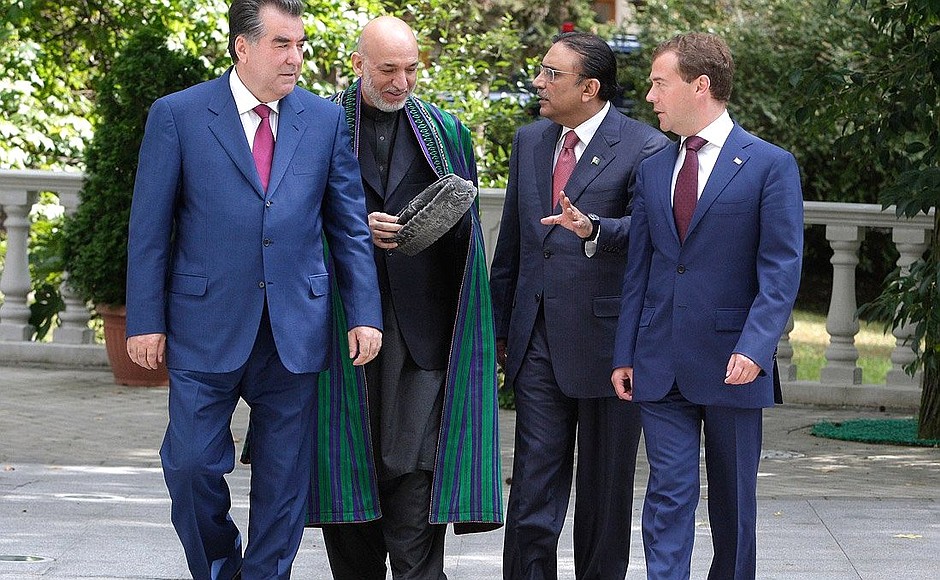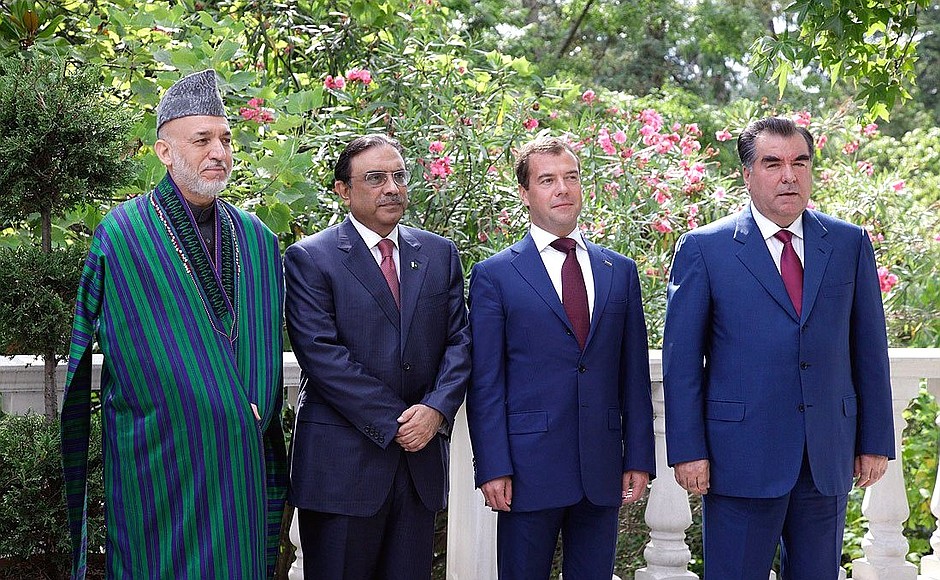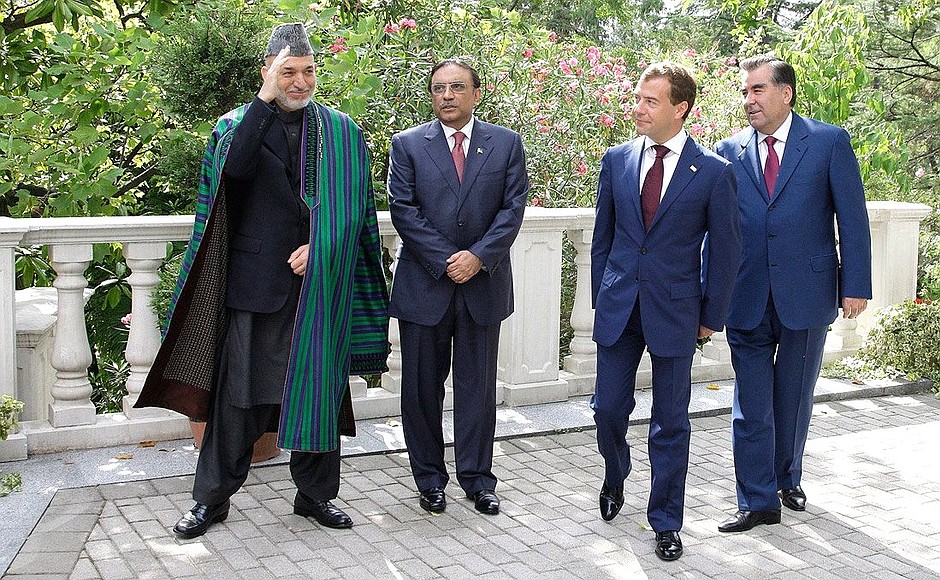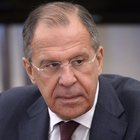On Mr Medvedev’s initiative, the presidents also reviewed further action to combat drug trafficking, extremism and terrorism. All countries must join forces to fight these challenges together rather than operate in isolation, the President said.
According to Russian Foreign Minister Sergei Lavrov, the summit meeting concentrated specifically on the situation in Afghanistan, fighting terrorism and preventing drug trafficking. A joint declaration adopted by the four presidents following the summit qualified terrorism and the drug trade as threats to peace and stability.
The four leaders declared their readiness to step up efforts in these areas, including through the Shanghai Cooperation Organisation (SCO) and the Collective Security Treaty Organisation (CSTO). Mr Lavrov noted that the CSTO regularly organises anti-drug trafficking operations, Channel, in which Russia and Tajikistan participate fully, and Pakistan and Afghanistan are observers.
The presidents also discussed economic cooperation, including in sectors such as energy, transport infrastructure, and the mining industry. They stressed the need to draw up and carry out joint regional projects, noting, in particular, the necessity to settle on specific plans for rebuilding the Salang Tunnel and developing Afghanistan’s hydroelectricity industry, taking into account the hydroelectric power stations the country already has.
Also on the agenda was aid for flood-hit Pakistan. Russia has already sent emergency supplies, and will make a number of further proposals at the upcoming conference organised by the UN on this issue, Mr Lavrov said.
The presidents decided to continue four-party contacts between their countries through their foreign and economy ministers. Mr Lavrov said that the economy ministers will launch projects in the relevant sectors, while the foreign ministers will work on foreign policy coordination.
On Tajikistan’s proposal, the next four-party meeting will take place in Dushanbe.
